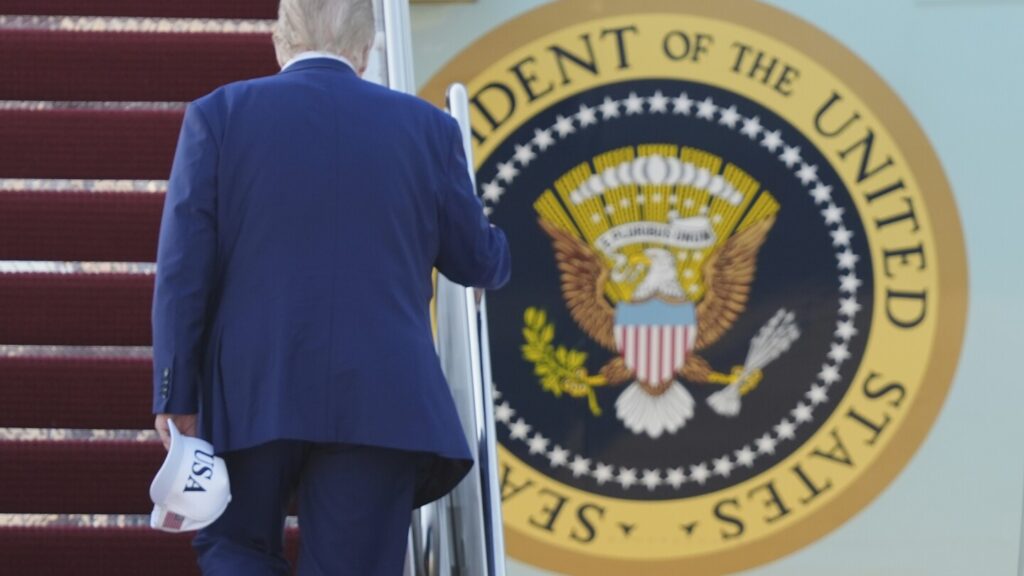
WASHINGTON – President Donald Trump has issued a direct order: “NO ONE GOES ON VACATION” until his significant legislative package reaches his desk by the Fourth of July. Congressional Republicans are working tirelessly to meet this deadline.
Immediate Impact
The Senate is preparing for weekend sessions, while House Speaker Mike Johnson has advised lawmakers to maintain “flexible” schedules for additional votes. Senate Majority Leader John Thune, R-S.D., expressed optimism, stating, “We are making good headway.” He anticipates the Senate will pass the bill by the week’s end, facilitating swift action in the House.
Key Details Emerge
Republicans, who hold the majority in both chambers, are facing challenges as they attempt to enact cuts to federal programs such as Medicaid and SNAP food stamps. Not all GOP members are in agreement, and the Senate parliamentarian has flagged several proposals as procedural violations. With Democrats staunchly opposed, GOP leaders are scrambling to finalize the bill.
The big bill aims to prevent a projected $3.8 trillion tax hike by making 2017 tax cuts permanent, while introducing new breaks.
Breaking: Tax Cuts at the Forefront
The primary objective is to avert what Republicans describe as a looming tax increase, estimated at $3.8 trillion, following the expiration of 2017 tax breaks. The bill proposes to make these tax rates permanent and introduce additional cuts, including exemptions on tips, overtime pay, and certain automotive loans.
By the Numbers
The Congressional Budget Office (CBO) estimates the bill will cost the poorest households $1,600 annually, while the wealthiest could see a $12,000 increase in deductions.
Middle-income taxpayers would benefit from a $500 to $1,500 tax break.
Funding Trump’s Security Agenda
The package includes $350 billion for Trump’s border and national security initiatives, promising the largest deportation operation in U.S. history. It allocates funds for 10,000 new Immigration and Customs Enforcement officers and 100,000 immigration detention beds, aiming to deport one million people annually.
Industry Response
Additionally, $12 billion is earmarked for state grants aiding federal immigration enforcement, with a proposed $3.5 billion fund named after former President Biden. Immigrants face new fees, including $1,000 for asylum seekers.
The Senate bill includes $40 million for a “National Garden of American Heroes,” a long-cherished Trump project.
How to Pay for It?
To offset lost tax revenue, Republicans propose cuts to Medicaid, SNAP, and green energy programs, challenging the legacies of Presidents Biden and Obama. The bill introduces new work requirements for Medicaid and SNAP recipients, affecting millions who rely on these programs.
Expert Analysis
Analysts note that 80 million Americans depend on Medicaid, and 40 million use SNAP. The CBO projects that 10.9 million more people would lose health coverage, and 3 million would lose food aid eligibility.
Senate Republicans argue that the bill’s tax provisions will cost $441 billion, not the $3.8 trillion suggested by Democrats.
What Comes Next?
As the Senate works through the weekend, the bill’s future remains uncertain. Key Republican senators and House representatives express concerns over Medicaid cuts and their impact on rural hospitals. Proposed revisions include a new rural hospital fund, though details are pending.
The bill’s total cost is estimated at $3.8 trillion over a decade, with spending cuts providing $1.5 trillion in savings. The House version could add $2.4 trillion to national deficits, a figure contested by Senate Republicans using a “current policy baseline” approach.
As Trump heads to Europe for a NATO meeting, he urges senators to “GET THE BILL DONE,” emphasizing the urgency of the legislative push.
Associated Press writers Darlene Superville and Mary Clare Jalonick contributed to this report.







